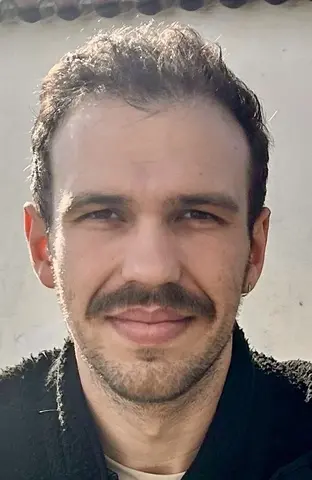Paul Klausing
paul.klausing@uni-erfurt.deDoctoral Candidate (Max Weber Centre for Advanced Cultural and Social Studies)
Office hours
by arrangement
Visiting address
Campus
Max Weber Centre for Advanced Cultural and Social Studies
C19 – research building "Weltbeziehungen"
Max-Weber-Allee 3
99089 Erfurt
Mailing address
Universität Erfurt
Max Weber Centre for Advanced Cultural and Social Studies
Postfach 90 02 21
99105 Erfurt

Personal Information
10/2016-08/2020: Bachelor of Science: Chemieingenieurwesen und Verfahrenstechnik | Karlsruher Institut für Technologie
10/2020-11/2023: Master of Arts: Responsibility in Science, Engineering and Technology | Technische Universität München
04/2024-heute: Doctoral Researcher of the International Graduate School for Self-World Relations | Max Weber Kolleg
Research Project
The Creation and Deliberation of Urban Spheres of Resonance
funded by Jutta Heidemann Stiftung
The dissertation project The Creation and Negotiation of Urban Spheres of Resonance at the International Graduate School Resonant Self-World Relations examines various everyday and subcultural urban practices, in particular street skateboarding, and the associated conceptions of public urban space.
Within the analytical framework of resonance theory, the work deals with the question of how individuals relate to their environment in urban space and which factors influence the development of resonant (i.e. meaningful, successful) world relations.
The direct connection between the quality of world relations and the material nature of space is established and it is analysed which spaces enable or prevent which type of relations. The project builds a bridge between contemporary studies in subculture research, spatial sociology and resonance theory and contributes to the continuation of the spatial turn in resonance theory.
By applying qualitative methods, such as conducting interviews and ethnographies in specific urban spaces and within urban subcultures, empirical conclusions can be drawn about the underlying self-world relations and thus the confining demands on urban space. Building on this analysis of urban space utilisation, the second part of the research project examines how actors of active urban creation such as designers, local politicians and user groups negotiate urban space in different forums and media and where conflicts arise.
Through a resonance-theoretical interpretation of urban negotiation processes, conflicts over space and the appropriation of space can be re-categorised and examined in terms of how actors relate to their environment. The final step of the project will analyse whether the normative content of resonance theory can be used to draw conclusions about design decisions.
